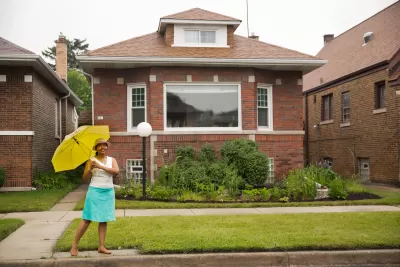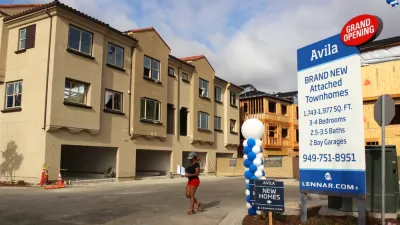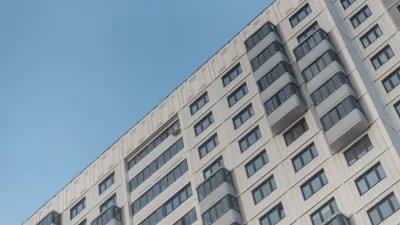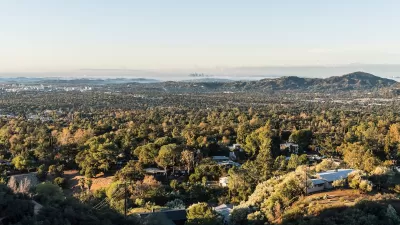Black Americans pay a higher price to be homeowners—and the number of those who can afford to pay that price is dropping quickly.

Feature reporting by Ailsa Chang, Christopher Intagliata and Jonaki Mehta dig into the past and present of what the headline of the story refers to as the "racist architecture of homeownership."
The statistics that explain the state of Black homeownership in the United States are staggering:
Over the last 15 years, Black homeownership has declined more dramatically than for any other racial or ethnic group in the United States. In 2019, the Black homeownership rate was about as low as in the 1960s, when private race-based discrimination was legal.
And after the explaining the history of redlining and other discriminatory practices built into the legal and financial systems of the country, the article explains this:
Today, many of the same neighborhoods that were redlined continue not only to have the highest poverty rates, but also worse health outcomes that lead to shorter lifespans. And Black Americans are nearly five times more likely to own a home in a formerly redlined neighborhood than in a greenlined, or "desirable," neighborhood, resulting in less home equity than white Americans have.
The article illustrates its points with human interest angles and a deep dive into the causes and effects of racism in the housing and development market of the greater Los Angeles area, starting with the neighborhood of Sugar Hill, razed and severed by the construction of the Interstate 10 Freeway, before also describing blockbusting in the city of Compton and the emigration of Black Americans from urban areas to suburban and exurban locations in the Inland Empire to the east of Los Angeles—the latter interrupted by the disparate impacts of the foreclosure crisis and predatory lending of the Great Recession.
A recent report by the Urban Institute offers supplemental reading about the causes of the decline of Black homeownership in six neighborhoods around the country.
FULL STORY: Black Americans And The Racist Architecture Of Homeownership

Planetizen Federal Action Tracker
A weekly monitor of how Trump’s orders and actions are impacting planners and planning in America.

Maui's Vacation Rental Debate Turns Ugly
Verbal attacks, misinformation campaigns and fistfights plague a high-stakes debate to convert thousands of vacation rentals into long-term housing.

San Francisco Suspends Traffic Calming Amidst Record Deaths
Citing “a challenging fiscal landscape,” the city will cease the program on the heels of 42 traffic deaths, including 24 pedestrians.

Amtrak Rolls Out New Orleans to Alabama “Mardi Gras” Train
The new service will operate morning and evening departures between Mobile and New Orleans.

The Subversive Car-Free Guide to Trump's Great American Road Trip
Car-free ways to access Chicagoland’s best tourist attractions.

San Antonio and Austin are Fusing Into one Massive Megaregion
The region spanning the two central Texas cities is growing fast, posing challenges for local infrastructure and water supplies.
Urban Design for Planners 1: Software Tools
This six-course series explores essential urban design concepts using open source software and equips planners with the tools they need to participate fully in the urban design process.
Planning for Universal Design
Learn the tools for implementing Universal Design in planning regulations.
Heyer Gruel & Associates PA
JM Goldson LLC
Custer County Colorado
City of Camden Redevelopment Agency
City of Astoria
Transportation Research & Education Center (TREC) at Portland State University
Jefferson Parish Government
Camden Redevelopment Agency
City of Claremont





























